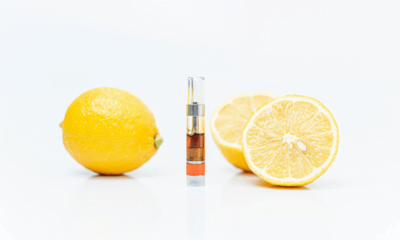CBD products have never been more popular, but how much do you actually know about the cannabinoid and are you using it to its full potential?
CBD seems to be everywhere now, with its potential to help us switch off widely touted.
As a result of the heightened anxiety brought on by the pandemic, sales have soared over the last year, with the majority of consumers looking to destress, restore restful sleep or relieve pain.
But its potential is much wider-reaching than that. Here’s a few things you might not know.

CBD can be helpful for those undergoing cancer treatment
The properties of CBD could help tackle symptoms of cancer. Many people undergoing cancer treatment such as chemotherapy, suffer from pain and inflammation around their internal organs, but CBD’s anti-inflammatory and pain-relieving properties, could help reduce this.
This is due to how CBD interacts with the endocannabinoid system, which is responsible for regulating and restoring balance in our body.
Your pets could benefit from CBD too
CBD can also help animals with health concerns such as pain and stiffness, epilepsy and anxiety. In the UK, there are currently no CBD products authorised for veterinary use, although according to the Veterinary Medicines Directorate (VMD), a vet may prescribe a legally obtained human CBD product “under the provisions of the prescribing cascade”.
That said, despite limited studies proving its effectiveness, CBD is becoming more popular among the pet owner community. Dogs also both have an endocannabinoid system, but it is thought to be more sensitive than that of a human.
CBD could be used to treat Covid-19
CBD could potentially help treat COVID-19. There are a number of studies that are still underway, however some early evidence, suggests that CBD can help those suffering from lung inflammation – a symptom of a serious case of Covid-19.
Scientists from the Dental College of Georgia and the Medical College of Georgia, in the US, demonstrated how CBD may have the ability to improve oxygen levels and reduce the physical lung damage related to the adult respiratory distress syndrome (ARDS). They found that CBD normalises levels of apelin, a peptide that reduces inflammation, which is observed to be at a low level in patients with the virus.
It might be a safer alternative to Ibuprofen
It is thought that CBD could be used for pain and inflammation control, due to its anti-inflammatory and pain-relieving properties. There also may be more benefits to taking CBD in comparison to Ibuprofen, such as no long-term side effects and being able to take it on an empty stomach. Prolonged use of Ibuprofen can also lead to stomach ulcers and intestinal bleeding, while CBD is all-natural and non- toxic – and you can’t overdose on it.
CBD is increasingly popular among women
More and more women are finding that CBD is helpful for relieving period pain, as well as symptoms of PMS and the menopause. But this isn’t a wholly new phenomenon. It is reported that even Queen Victoria used cannabis CBD oil to help combat her menstrual cramps, advocated by her physician, Sir J. Russel Reynolds.
The theory on how CBD can relieve menstrual cramps comes from the idea that it can alleviate the pain caused as the uterus contracts to expel its lining. While there are no research studies specifically on CBD and period pain, renowned cannabis clinician, Dr Dani Gordon has previously spoken about how her patients who take CBD oil daily at a high enough dose, report less severe symptoms of period pain and PMS, after three months of use.

 News6 months ago
News6 months ago
 News6 months ago
News6 months ago
 News6 months ago
News6 months ago
 Science5 months ago
Science5 months ago
 Industry5 months ago
Industry5 months ago
 News6 months ago
News6 months ago
 Medical cannabis6 months ago
Medical cannabis6 months ago
 News5 months ago
News5 months ago














